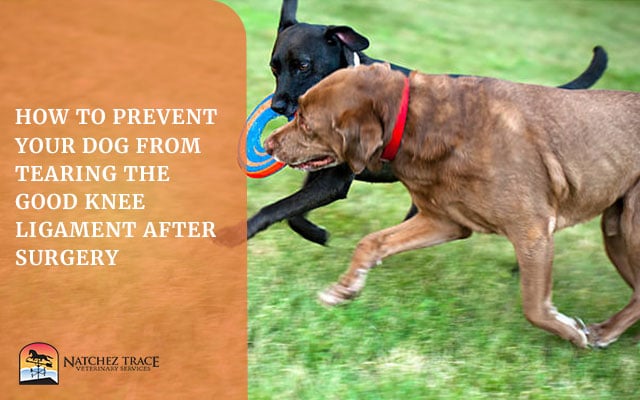Here’s How to Prevent Your Dog from Tearing the Good Knee Ligament After Surgery
Nothing can be more frustrating and depressing than having surgery on your dog’s knee, paying a lot of money, going through the rehab and ending up exactly where you started. Unfortunately, this situation is fairly common.
So how do you prevent your dog from tearing the “good” knee ligament after surgery?
The following scenario is typical in my practice.
Your dog has cruciate ligament disease with the recommended treatment being surgery. You are trying to decide what to do!
You ask yourself:
What surgical technique is best? Should I go to a specialist? How am I going to afford this? All these questions race through your mind. The next, maybe most important and least forgiving question is the following: How do I prevent this from happening in the other “good” knee?
Fact
50% of dogs that tear the one cruciate ligament will tear the opposite side sometime in their lifetime according to the veterinary literature. This 50% statistic seems a little low. 70% seems about right.
Frequently, just after surgery, the “good” knee takes on too much weight. This overload or excessive weight-bearing frequently initiates tearing of the ligament in the “good” knee. At this point and in order to avoid another knee surgery, you must be proactive and aggressive in preventing your dog from tearing the overloaded “good” knee ligament.
Steps in Prevention
- Prolotherapy- great for this; Read this article!
- Correct Dietary Issues! Supplement with vitamins and minerals that aid collagen formation.
- Pain control and physical therapy in operated leg.
- Consider hormonal supplementation depending on the individual animal (i.e. testosterone and estrogen).
- Eastern Herbal- Tendon/Ligament formula by Jing Tang Herbal.
In my practice, I often see both knees having slightly torn ligaments or one knee normal and the other fully or partially torn. However, when both knees are torn, one knee tends to be more clinically significant than the other.
These cases are all unique, different situations and the previously mentioned therapies may still apply. Good Luck!







